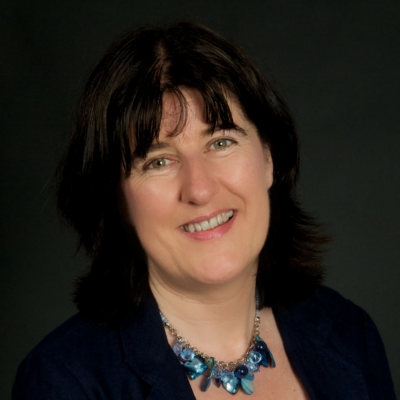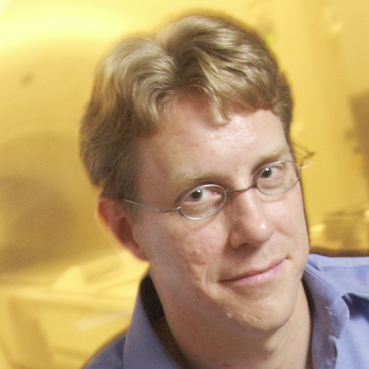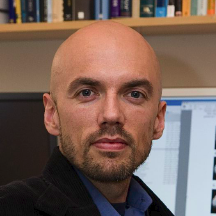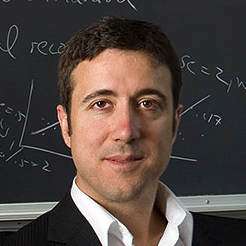Deanna Barch, Chair and Professor, Psychological & Brain Sciences, Washington University in St. Louis
Deanna Barch is currently Chair of the Department of Psychological & Brain Sciences and the Gregory Couch Chair of Psychiatry. She received her undergraduate degree from Northwestern University, completed her Ph.D. at the University of Illinois in Champaign-Urbana and completed a postdoctoral fellowship at Western Psychiatric Institute and Clinic. Dr. Barch is Deputy Editor at Biological Psychiatry and is on the Editorial Boards of Schizophrenia Bulletin, Journal of Abnormal Psychology, and Clinical Psychological Science. Dr. Barch is on the Scientific Board of the Brain and Behavior Research Foundation and the Stanley Foundation and on the Executive Committee of the Association for Psychological Science. Dr. Barch’s research has been funded by the NIMH, NARSAD, NSF, and the McDonnell Center for Systems Neuroscience. She is a Fellow of the Association for Psychological Science and a member of the American College of Neuropsychopharmacology. Her research program is focused on understanding normative patterns of functional brain connectivity across development as well as the mechanisms that give rise to the challenges in behavior and cognition found in illnesses such as schizophrenia and depression, utilizing behavioral, neuroimaging and computational approaches.
Elaine Fox, Professor of Psychology & Affective Neuroscience, University of Oxford
Elaine Fox, PhD is Professor of Psychology and Affective Neuroscience at the University of Oxford, Director of the Oxford Centre for Emotion and Affective Neuroscience (OCEAN) and a Fellow of University College, Oxford. Her work focuses on the nature of human emotions and why there are such a wide variety of responses to the same environmental situation. In the past, Professor Fox’s research centered around the notion that emotional vulnerability, especially anxiety-related problems, is associated with negative biases in the attention system and she is perhaps best known for her discovery that anxiety is associated primarily with biases in the inflexibility of disengaging attention from threat as well as selective biases to gravitate towards threat in the environment (Fox et al, 2001, Journal of Experimental Psychology: General). More recently, her work investigates the association among a variety of cognitive biases and cognitive flexibility with emotional vulnerability as well as resilience and wellbeing in both adults and adolescents. Professor Fox was awarded a prestigious European Research Council (ERC) Advanced Investigator Award in 2013 that allowed her to establish a small team of inspiring young scientists who are helping her to investigate the role of cognitive mechanisms and molecular genetics in the development of a) anxiety, depression, addiction risk and pain-related behaviours as well as b) optimal mental wellbeing and resilience. This research – the CogBIAS project – utilizes theory and methods from cognitive neuroscience, molecular genetics and affective neuroscience to address these “big” questions. Professor Fox is also passionate about engaging the public with psychological science and has written a popular science book – Rainy Brain Sunny Brain – that brings the science of why some people flourish and others flounder to a general audience. She is on the Editorial Boards of the journals Emotion; Clinical Psychological Science; and Cognition and Emotion and is a Fellow of the Association for Psychological Science and the British Psychology Society.
James Gross, Professor of Psychology, Stanford University
Dr. James Gross is Professor of Psychology at Stanford University. Dr. Gross earned his BA in philosophy from Yale University and his PhD in clinical psychology from the University of California, Berkeley. He is a leading researcher in the areas of emotion and emotion regulation, and editor of the Handbook of Emotion Regulation. He has received numerous research and teaching awards, including Stanford’s highest teaching award, the Walter J. Gores Award for Excellence in Teaching, as well as the Stanford Posdoctoral Mentoring Award. Dr. Gross has also received research awards from the American Psychological Association, the Society for Psychophysiological Research, and the Social and Affective Neuroscience Society. Dr. Gross has authored over 375 publications, is founding President for the Society for Affective Science, and Fellow in the Association for Psychological Science and the American Psychological Association.
Brian Knutson, Professor of Psychology & Neuroscience, Stanford University
Brian Knutson is a Professor of Psychology and Neuroscience at Stanford University. His research focuses on the neural basis of emotional experience and expression. He has investigated the topic with a number of methods including self-report, measurement of nonverbal behavior, comparative ethology, psychopharmacology, and neuroimaging. His long-term goal is to understand the neurochemical and neuroanatomical mechanisms responsible for emotional experience, and to explore the implications of these findings for the assessment and treatment of clinical disorders as well as for economic behavior. Knutson has served as President of the Society for Neuroeconomics, and is a fellow of the Academy for Behavioral Medicine Research as well as the Association for Psychological Science. He received BAs in experimental psychology and comparative religion from Trinity University, a PhD in experimental psychology from Stanford University, and has conducted postdoctoral research in affective neuroscience at UC-San Francisco and at the National Institutes of Health.
Kevin Ochsner, Professor of Psychology, Columbia University
Kevin directs the Social Cognitive and Affective Neuroscience (SCAN) Lab in the Columbia University Dept of Psychology. The SCAN lab studies the behavioral and brain bases of emotion, self-control, and person perception across the lifespan and in various forms of psychiatric and substance abuse. Kevin received a Ph.D. in psychology from Harvard and postdoctoral training at Stanford. He is a recipient of the Young Investigator Award from The Cognitive Neuroscience Society, Columbia University’s Lenfest Distinguished Faculty Award, and the APA New Investigator Award. His lab’s research has been funded by grants from private and public institutions, including the National Institutes for Mental Health (NIMH), Aging (NIA), Child Health and Development (NICHD), Drug Abuse (NIDA) and Alcoholism and Alcohol Abuse (NIAAA). He has been an editor at various journals, helped found the Social and Affective Neuroscience Society (SANS) and has been president of the Society for Affective Science (SAS). In 2008 Kevin was identified as the most cited Assistant Professor in Social Psychology and in 2010 he was identified as 27th most cited Social Psychologist of all time, corrected for stage of career. The author of more than 100 scientific articles and editor of two books, the SCAN lab's work continues to be among the most cited in Social Psychology and Social Cognitive and Affective Neuroscience.
Leah Somerville, Associate Professor of Psychology, Harvard University
Leah Somerville is an Associate Professor of Psychology and core faculty member of the Center for Brain Science at Harvard University. Since joining the faculty at Harvard in 2012, she has been the director of the Affective Neuroscience and Development Laboratory. The lab’s research integrates psychological and neuroscientific approaches to inform how the way in which the brain develops through adolescence shapes psychological changes in cognitive, motivational, social, and emotional behavior. More broadly, this work is aimed at revealing the mechanisms underlying unique features of adolescent emotions, decision-making, and risk for mental illness. Leah completed her bachelors degree at the University of Wisconsin, PhD at Dartmouth College, and postdoctoral training at Weill Cornell Medical College. She has received early career awards from the Association for Psychological Science, American Psychological Association and Cognitive Neuroscience Society, as well as a university-wide mentoring award from Harvard University's Graduate School of Arts and Sciences. Her work is funded by the National Science Foundation, Brain and Behavior Research Foundation, American Psychological Association, and National Institutes of Health. Recently, Leah’s lab has become engaged in conducting the Human Connectome Project in Development, which is an extremely large, NIH-funded study on multimodal brain connectivity across development from middle childhood to early adulthood.
Tor Wager, Professor of Psychology and Neuroscience, University of Colorado at Boulder
Tor Wager is Professor of Psychology, Neuroscience, and Cognitive Science at the University of Colorado, Boulder. He received his Ph.D. from the University of Michigan in Cognitive Psychology in 2003, and served as an Assistant and Associate Professor at Columbia University from 2004-2009. Since 2010, he has directed Boulder’s Cognitive and Affective Neuroscience laboratory. Much of the lab’s work centers on the neurophysiology of pain and emotion and how they are shaped by cognitive and social influences. In particular, Dr. Wager is interested in how thoughts and beliefs influence affective experiences, affective learning, and brain-body communication. In addition to negative emotions and stressors, the lab also focuses on prosocial emotions, including compassion and empathy. In addition to basic research, Dr. Wager’s lab is involved in developing analysis methods for fMRI analysis. He and his group have developed several publically available software toolboxes. He regularly teaches workshops on fMRI analysis and has co-authored a book on the subject, titled Principles of fMRI. Finally, a third focus is on collaborative, translational research incorporating brain systems-level analyses into the study of clinical disorders, including chronic pain, PTSD, Parkinson’s Disease, depression, and schizophrenia. More information about the lab’s activities, publications, and software can be found at http://wagerlab.colorado.edu.
 Deanna Barch
Deanna Barch Elaine Fox
Elaine Fox James Gross
James Gross Brian Knutson
Brian Knutson Kevin Ochsner
Kevin Ochsner Leah Somerville
Leah Somerville Tor Wager
Tor Wager